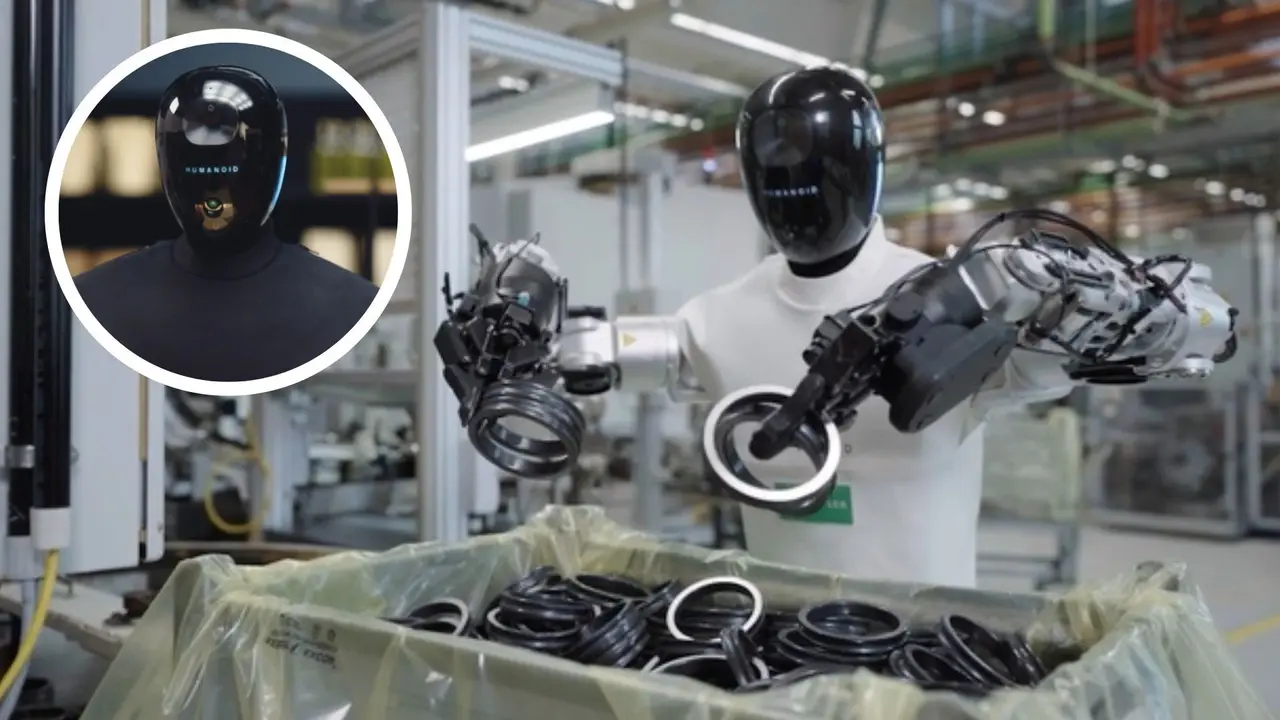Venture Capital Industry Faces Exodus Amid Prolonged Downturn
2 Sources
2 Sources
[1]
Turns out being a venture capitalist can be really hard and some VCs want out
For venture capitalists, when the going gets tough, the tough get going...toward the exits. Some VC workers are reconsidering their future as the industry goes through a rough patch, writes Business Insider's Sri Muppidi. It's been a rough two years for VCs. Fundraising dried up. Firms downsized. Valuations have stagnated or, God forbid, gone down. That's left workers wondering: What the hell happened? Just a few years ago, VCs were the toast of the town. A Patagonia vest and a pair of Allbirds might as well have been Superman's cape when it came to investing. The ink was barely dry on a deal before startups were raising another round, doubling their VCs' investment (on paper) along the way. Even Wall Street got jealous of the eye-popping returns -- again, on paper -- that VCs were getting on. The hedge fund Tiger Global tried bullying its way into the space. And then it all came crashing down. VCs are on pace to raise $200 billion this year, which is about half of what they did in 2021. AI is the only bright spot in the startup community, making it incredibly crowded. Meanwhile, exit opportunities -- a chance for VCs to cash out -- are few and far between. Eye-popping IPOs are a thing of the past, and acquisitions are a lot harder with high interest or at a much lower valuation than they once were. To be sure, some VC complaints feel a bit overblown. One Bay Area partner told Sri junior investors need to meet dozens of companies a week. Another lamented about constantly cold emailing founders. While I imagine that's not necessarily fun, it does seem like a standard requirement for someone trying to find young companies to invest in. Soon-to-be unicorns aren't going to fall into your lap, even if it might have seemed that way before. But the rub for many junior employees, sources told Sri, is that the work isn't leading to a pay off in the form of an investment. There are too many VCs vying for too few startups worth backing. That's led to what feels like a lot of busy work and a lack of upward mobility, as funds aren't keen to promote when new deals aren't coming in. Even if the industry faces an exodus of disillusioned junior employees, they'll likely still be a fresh crop eager to step up into the open spots that still remain. Back when VC was booming in 2021, investment banks' juniors were complaining about long hours. A few years later, Goldman Sachs, one of the banks at the center of drama, saw a record number of applicants for its internship. The Insider Today team: Dan DeFrancesco, deputy editor and anchor, in New York. Jordan Parker Erb, editor, in New York. Hallam Bullock, senior editor, in London. Amanda Yen, fellow, in New York.
[2]
Venture capital's new reality check: 'A ton of people are looking to get out everywhere'
This story is available exclusively to Business Insider subscribers. Become an Insider and start reading now. Have an account? Log in. But increasingly, over the last two years, this energy has dissipated. Investors -- from analysts to partners -- have grown increasingly frustrated and disillusioned. 2021 and 2022 made VC sexy, said an early-stage associate, likening the industry to fashion and entertainment. During the zero-interest rate years, the ranks of the VC industry swelled, a trend that was supercharged by the pandemic. Money poured into the sector for the high returns promised by venture. Existing firms expanded their scope; early-stage firms began to try their hand at growth, and vice-versa. Private equity shops and hedge funds dipped into venture with crossover funds. Corporations flush with cash from record profits sought to make strategic investments. Firms multiplied as existing investors struck out on their own. Now, the market downturn has cast many aspects of the industry in a harsh light. Rising interest rates, delayed IPOs, and a slump in public markets have hit the venture industry hard. While it seemed that firms could only grow in size, many are now shrinking. PitchBook forecasts venture firms will raise less than $200 billion in 2024, a 48% drop from the industry's peak in 2021. Greycroft, for example, parted ways with five investors in October 2023 after it missed its fundraising target by about 40%, The Information reported. YCombinator laid off 20% of its staff and cut back on growth-stage investing and remote programming, reported TechCrunch Frustrations that were manageable in the glow of a bull market seem like dealbreakers in a bear market, and investors are coming to terms with limited growth opportunities. Fierce competition over deals has only worsened the daily grind and intensified office politics. Business Insider spoke to 11 partners, principals, and associates at VC firms across the country. All of these individuals asked for anonymity for fear of retaliation from the firms where they are employed. These "publicly-announced layoffs have only been the tip of the iceberg," Will Champagne of recruiting firm SCGC Search told Business Insider. For instance, some senior and midlevel investors at certain firms are being told that they have six to twelve months to find a new job. For junior talent, some firms are opting not to promote junior investors after their two-year programs and encourage them to explore other options. Even for those still in the industry, being a VC has lost some of its luster. Fewer promotions are available, limiting investors' career growth. While it is never easy to make partner, the first few years of the pandemic provided relatively more opportunities. Promotions happened faster when deals were getting marked up, and firms were raising bigger funds -- this is a "bull market phenomenon," said an early-stage partner. But when the market is contracting, promotions don't happen unless someone leaves. Otherwise, someone has to take a cut in carry to promote another investor. "It's probably even harder to get promoted today than it was when I did," said the same early-stage partner. "You just have more people at the top," and even if firms say they'll promote someone, "the bar is just so high"-- investors would need to "find the next Snapchat or something. It's kind of unrealistic." These unrealistic expectations are par for the course. Venture firms often set expectations and timelines that they have no intention of upholding, said a Bay Area partner. "You're never going to get a metric that'll make you happy. You're never going to get a timeline that'll make you happy. You're just never going to know." As a result, investors have to make the case for themselves -- sometimes forcefully. "A lot of people have to do things like threaten to leave and get offers elsewhere to compel their firm to finally make a promotion," said an AI investor. And even if someone is performing well, they might not get promoted if others are ahead of them in line, added the AI investor. "Maybe people are ready in terms of the quantitative metrics, but maybe they're not ready in terms of being first in line." The process can also be very subjective, said an ex-VC. "You are going to be measured in the short term by how people feel about you and whether or not they like you...It was on me to speak in words that my partner understood, to adjust my communication style to them to make them like me, to make this relationship as seamless as possible." Female investors, in particular, were frustrated by this, the ex-VC added. "I knew a lot of women who just were like, I just don't have fucking time for that." At the end of the day, the promotion decision can simply come down to luck. One investor noted a particularly extreme example of this: someone accidentally got promoted because the firm mistakenly changed his title to "partner" by mistake. After getting a lot of inbounds due to the title change, the firm officially promoted him. "Now there's no room for anyone else in the fund to make partner." But even if investors make it to the top, it's not all rosy. Poor fund performance has made carry worthless, said a growth stage principal. Many investors received meaningful carry in funds only a few years ago. But prior funds from the pandemic years didn't perform well because many companies were overvalued. "They may not see any carry dollars for a long time, maybe into full deployment to the next fund," the growth stage principal said. "And then you start to think about how long will you have to work in venture before you start to see any kind of significant financial return," the growth stage principal added. Fierce competition over the same deals has amplified daily frustrations and office politics. Despite the large increase in venture dollars after the pandemic, the "number of great companies has stayed the same and possibly even shrunk," said the AI investor. "There's just a lot of capital chasing the same few deals at the same time." Many are focusing on AI, with firms like a16z merging teams to prioritize this sector. However, investors hired to focus on specific areas, such as consumer, fintech, crypto, or healthcare, are now forced to invest in fields outside their interest, according to a venture recruiter. AI deals, in particular, are highly competitive, requiring firms to make quick decisions. For example, Haize Labs received multiple term sheets for its early-stage round. "It's a lot harder to get shots on goal when there's so much competition," said an AI investor. This increased competition has demanded more sourcing. Firms require junior investors to meet with dozens of companies each week, said a Bay Area partner. Despite numerous meetings, this doesn't necessarily translate to a strong investment track record. "You can meet with bad companies all day long." Additionally, some find the sourcing process to be tedious. "When the market is slower, in times like now, sometimes you just spend six hours a day cold emailing people and scraping through prospect lists," said a growth-stage associate. "If I have to write another cold email to some founder about how I'm excited about what they're doing, I might lose my mind." When the market is tough and deals are scarce, infighting at firms has intensified too. Investors are increasingly stealing each other's deals, said one Bay Area partner. Stealing credit is common among peers, including at the partner level, and even occurs between different levels, such as principals and partners, the Bay Area partner added. This rivalry extends into the deal execution phase. One multi-stage investor said that they observed partners killing junior VCs' deals for arbitrary reasons, like finding the founder arrogant. Some junior investors have also sabotaged partners' deals. Junior VCs would do all the grunt work but then help kill the deal by going to a competing partner and explaining why they didn't believe in it, despite what they wrote in the investment memo, said a growth-stage principal who observed this at their prior firm. But this type of internal competition, including deal theft and sabotage, has always existed, the growth-stage principal noted. "It would be wrong to say that VCs don't compete with other partners at their firms," said an ex-VC. "This is an individual sport. It is not a team sport." As the market continues to correct itself, more turnover is likely. "I know a ton of people looking to get out everywhere," said the growth-stage principal. "But the issue is because it's largely a market-wide problem from LPs, there's not really a ton of good places to go who don't face the same problem." Senior and midlevel investors, involved in fundraising, can especially see the writing on the wall, said Champagne. "I'm getting approximately four times the number of inbounds consistently in the last 18 months from principal and partner-level candidates looking for new roles as opposed to 2.5+ years ago." Many are done with venture entirely. "I was like, shit, I need to refresh my investor network," said the early-stage partner, noting the many departures in their network. Another principal added -- "I've had a number of friends leave this industry." While venture is a fun, intellectual exercise, investors are not really making a positive impact, said the growth-stage associate. "I just realized that [at] this stage of my career, where I want to grind and get shit done, venture is not really the place to do that."
Share
Share
Copy Link
The venture capital industry is experiencing a significant shift as many professionals consider leaving the field due to a prolonged downturn. This exodus is prompting a reevaluation of career paths within the VC world.

Venture Capital Industry in Turmoil
The venture capital (VC) industry is facing a significant upheaval as a prolonged downturn forces many professionals to reconsider their career paths. The once-booming sector, known for its high-stakes investments and potential for substantial returns, is now grappling with a harsh reality check that has left many questioning their future in the field
1
.Mass Exodus and Career Reevaluation
Reports indicate that a considerable number of VC professionals are actively seeking ways to exit the industry. The downturn has led to a stark reassessment of career prospects, with many feeling the pressure to find more stable and lucrative opportunities elsewhere. As one industry insider put it, "There's a ton of people looking to get out"
2
.Factors Driving the Exodus
Several factors are contributing to this exodus:
-
Market Saturation: The VC industry has become increasingly crowded, making it harder for firms to stand out and secure profitable deals.
-
Economic Uncertainty: Global economic challenges have led to a more cautious investment climate, reducing the number of lucrative opportunities.
-
Performance Pressure: With fewer successful exits and IPOs, many VCs are struggling to deliver the returns expected by their limited partners
1
.
Related Stories
Impact on the VC Landscape
This shift is likely to have far-reaching consequences for the VC ecosystem:
-
Brain Drain: The industry may lose experienced professionals, potentially impacting the quality of investment decisions.
-
Restructuring: VC firms may need to reevaluate their strategies and structures to retain talent and remain competitive.
-
Opportunity for New Entrants: As established players exit, there may be openings for fresh perspectives and innovative approaches to venture capital
2
.
Looking Ahead
The current situation presents both challenges and opportunities for the VC industry. While the exodus of talent is concerning, it may also lead to a necessary recalibration of the sector. Those who weather the storm and adapt to the changing landscape may find themselves well-positioned when the market eventually rebounds.
As the industry continues to evolve, it will be crucial for VC professionals to remain agile and open to new ways of operating in this dynamic and often unpredictable field. The coming months and years will likely see a significant reshaping of the venture capital landscape, with potential long-term implications for startup funding and innovation.
References
Summarized by
Navi
[1]
Related Stories
Venture Capital Struggles Amid IPO Drought as AI Startups Dominate Investor Attention
15 Nov 2024•Business and Economy

AI Investment Strategies: Insights from General Catalyst and Sentinel Global
27 Aug 2025•Business and Economy

Venture funding surges 30% in 2025 as AI investments dominate startup deals and valuations
07 Jan 2026•Business and Economy

Recent Highlights
1
SpaceX acquires xAI as Elon Musk bets big on 1 million satellite constellation for orbital AI
Technology

2
French Police Raid X Office as Grok Investigation Expands to Include Holocaust Denial Claims
Policy and Regulation

3
UNICEF Demands Global Crackdown on AI-Generated Child Abuse as 1.2 Million Kids Victimized
Policy and Regulation





